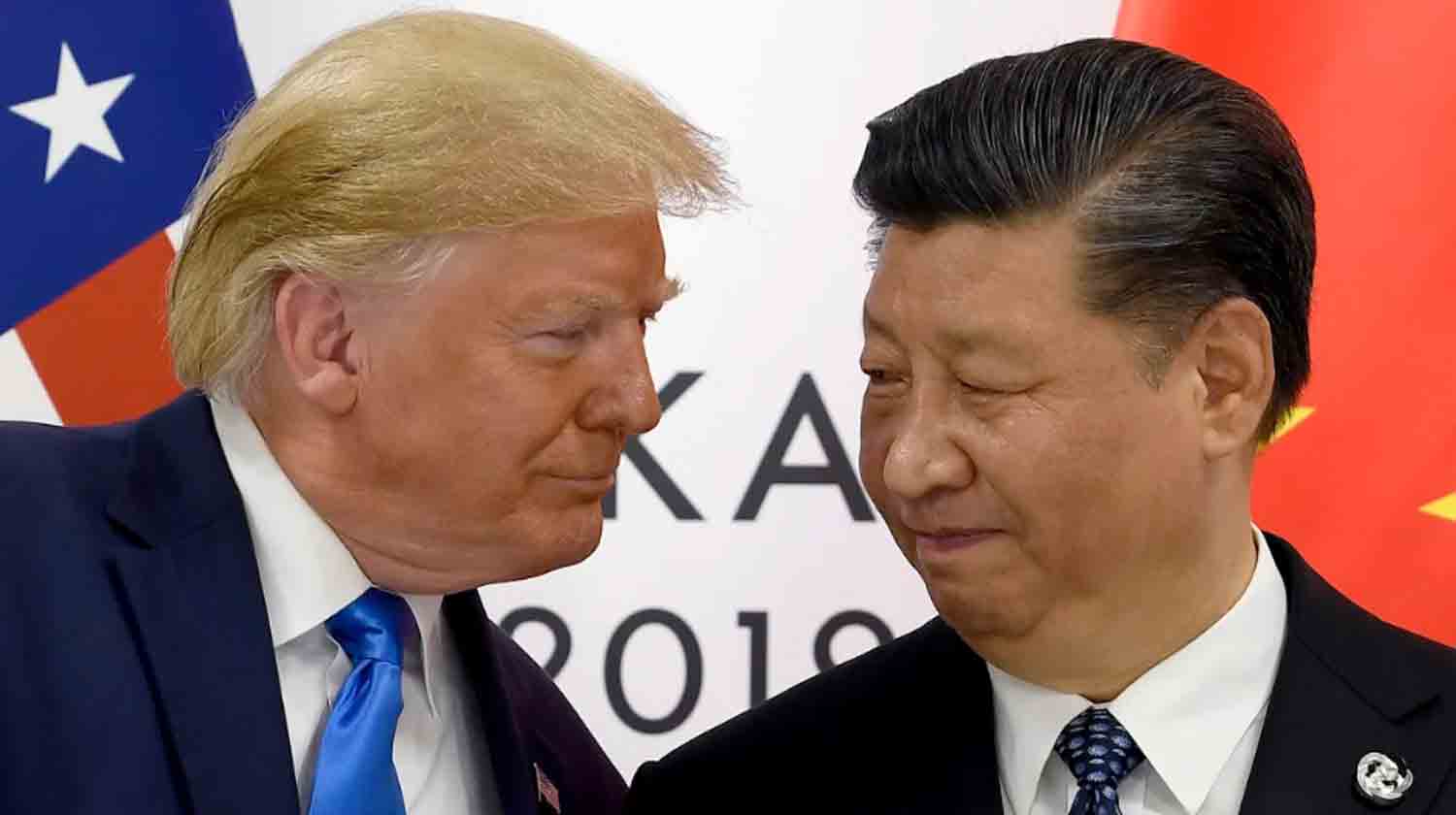One individual referred to China as an “existential threat,” while another advocated for a “whole-of-society effort” to address the challenges posed by China, subsequently facing sanctions from Beijing on two occasions. A third individual asserted that the Chinese military was “specifically dedicated to defeating the United States of America.”
US President-elect Donald Trump’s proposed cabinet is populated with individuals known as China hawks, who have expressed a clear intention to confront America’s rising superpower competitor across various policy areas, including the economy and national security.
However, in contrast to Trump’s previous inauguration eight years ago, Chinese leaders may not be taken by surprise by a more aggressive stance this time.
Experts suggest that Beijing is now better equipped to navigate interactions with a transactional leader and the ideological hardliners surrounding him. They may attempt to create back-channels through more China-friendly figures within Trump’s inner circle, such as Elon Musk.
Analysts of China’s foreign policy are realistic about the likely deterioration of relations under Trump, who during his campaign threatened to impose tariffs on Chinese imports of up to 60%. Recently, he announced plans to implement an additional 10% tariff on Chinese goods, adding to existing tariffs.
“Examining Trump’s team, it is evident that most, if not all, are China hawks. The appointed officials are expected to adopt a hardline approach that escalates competition with China,” stated Yun Sun, director of the China program at the Stimson Center in Washington. “I believe Beijing does not view any of them favorably.”
Some foreign policy analysts in China contend that the president-elect may still be inclined to negotiate with China and could exhibit more flexibility than his cabinet selections imply.
Hal Brands, a professor of global affairs at the Johns Hopkins School of Advanced International Studies, notes that while Trump is primarily focused on the economic challenges posed by China, many officials in the incoming administration, including those from the National Security Council and the departments of state and defense, are more concerned with the military and security threats that China presents.
“The key question is whether they can leverage Trump’s overall economic assertiveness towards China to implement policies that are robust and proactive regarding security issues, or if Trump’s lesser interest in these aspects complicates that effort,” Brands remarked.
Trump’s choice for national security adviser, Rep. Mike Waltz, has publicly stated on multiple occasions that the Chinese Communist Party is engaged in a “cold war” with the United States. His nominee for secretary of state, Sen. Marco Rubio, is recognized in China as a leading figure against the country and is currently under sanctions from Beijing. Additionally, Pete Hegseth, the former FOX News host selected for defense secretary, has expressed concerns that China aims to defeat the U.S. and achieve global supremacy.
Wu Xinbo, director of the Center for American Studies at Fudan University in Shanghai, emphasized the need for Beijing to differentiate between Trump’s hardline advisers and the president-elect himself.
“While many of the hardliners indeed advocate for a complete confrontation and decoupling from China, it remains to be seen if that aligns with Trump’s vision for U.S.-China relations. If it does not, their policy initiatives may be moderated by Trump’s own stance,” he stated.
Musk has significant business interests in China
The presence of China hawks in the upcoming administration is likely to intensify Beijing’s efforts to establish alternative communication channels with Trump, starting with Elon Musk.
As the billionaire founder of Tesla, Musk has significant business interests in China, where his company produces half of its electric vehicles. He frequently meets with Chinese officials during his visits.
“Everyone is keenly observing the role Elon Musk will assume regarding China,” noted Sun. “China certainly hopes he will serve as a communication conduit and possibly contribute positively.”
Musk often aligns with some of Beijing’s perspectives, advocating for a mutually beneficial economic relationship and referring to Taiwan as an “integral part of China.” The future of a major Musk enterprise like Tesla may depend on the trajectory of relations between the two largest economies over the next four years.
However, it remains uncertain whether Musk is prepared or capable of influencing U.S. policy to favor China.
“It appears that the role Trump envisioned for him is more focused on government efficiency, so I do not anticipate Musk playing a significant part in foreign affairs,” stated Lyle Morris, a senior fellow at the Asia Society Policy Institute.
“Nonetheless, considering Elon’s substantial business interests in China, I expect Trump will take Musk’s opinions on the U.S.-China business relationship into account.”
Beijing is preparing for a challenging period ahead. Economists have cautioned that the proposed 60% tariffs by Trump could severely impact China’s struggling economy, potentially halving its growth rate.
Scott Bessent, Trump’s selection for treasury secretary and a hedge fund executive, has referred to tariffs as “a valuable instrument for fulfilling the president’s foreign policy goals,” characterizing Trump’s threats as a “maximalist negotiating stance.”
Jamieson Greer, nominated as the US trade representative, previously served as chief of staff to Robert Lighthizer, a staunch protectionist who spearheaded the trade conflict with China during Trump’s initial term. Greer has consistently supported Lighthizer’s hardline approach towards Beijing and has promoted the idea of “strategic decoupling” from China.
Wu, a scholar from Fudan University, indicated that China “must brace itself for significant challenges that could emerge in China-US relations. The outlook is quite bleak across trade, diplomacy, and security.”
A pressing issue for Beijing is how to respond to the sanctions imposed on Rubio, which were enacted in retaliation for US sanctions against Chinese officials related to actions in Xinjiang and Hong Kong.
Rubio is poised to be the first sitting US secretary of state to face sanctions from Beijing, raising concerns about his ability to visit China in his capacity as the top US diplomat.
Experts in both the United States and China remain split on the likelihood of Beijing lifting sanctions on Rubio. However, there is a consensus that the Chinese government possesses the pragmatism necessary to ensure that these sanctions do not hinder diplomatic relations.
From Beijing’s perspective, Rubio is not viewed as the most problematic choice, according to Chinese analysts.
“Many in China felt a sense of relief when Trump announced that he would not invite former Secretary of State Mike Pompeo to his new administration,” Wu noted. “In many respects, Pompeo was a significant factor in the decline of China-US relations.”
Pompeo, who previously urged the Chinese populace to participate in a global initiative to “change the behavior” of their government, was sanctioned by Beijing alongside over two dozen former officials from the Trump administration when Biden assumed office.
Taiwan and ‘red lines’
Some analysts in China contend that Beijing has gained a more nuanced understanding of Trump’s strategies and is now better equipped to navigate his potential second term.
“China has evolved significantly since Trump first took office eight years ago, in terms of its mindset, capabilities, and global standing. It has achieved greater status and confidence,” remarked Wang Yiwei, a professor of international studies at Renmin University in Beijing.
“We have come to comprehend Trump’s character – if China displays any sign of weakness, he will exploit it further. Thus, China must avoid making concessions, particularly at the outset.”
Chinese leaders are likely to be especially wary of the new foreign policy team’s position on Taiwan, which represents a critical issue for Beijing.
Rubio has consistently advocated for Taiwan, a self-governing democracy that Beijing aims to bring under its control, potentially by force. He has championed various legislative measures to enhance the relationship between Washington and Taipei, including expediting US arms sales to the island.
Taiwan’s President Lai Ching-te extended his congratulations to Rubio on his nomination via a post on X, expressing gratitude for his “steadfast support for Taiwan” and looking forward to future collaboration.
National security nominee Waltz has called on the next U.S. president to swiftly resolve the conflicts in Ukraine and the Middle East, while shifting strategic focus towards Asia to better prepare for a possible Chinese invasion of Taiwan. This perspective aligns with sentiments expressed by Trump’s running mate, JD Vance, during the campaign.
However, this does not imply that Trump, who has championed an “America First” policy that leans towards isolationism, is eager for international conflict. He has historically approached alliances and U.S. commitments with a transactional mindset, often expressing admiration for authoritarian leaders abroad.
During his campaign, Trump accused Taiwan of “stealing” the semiconductor industry from the United States, suggesting that the self-governing democracy should compensate the U.S. for its protection.
Experts in the industry argue that Taiwan developed its semiconductor sector through strategic planning, diligent effort, and investment. Additionally, the island has acquired most of its military equipment from U.S. manufacturers over the years. Nevertheless, Trump’s campaign language indicated a more transactional view regarding Taiwan.
In an interview with The Wall Street Journal, when asked if he would resort to military action against a Chinese blockade of Taiwan, Trump suggested that such a scenario would be unlikely because Xi Jinping respects him and perceives him as unpredictable. Instead, he proposed imposing tariffs of 150% to 200% on China.
Wang, a professor at Renmin University, noted that regardless of their ideological perspectives, Trump’s cabinet selections will ultimately need to align with his overarching vision.
“I believe Trump is open to negotiating with China, and he will ensure that his team adheres to this direction,” he stated.
Discover more from Defence Talks | Defense News Hub, Military Updates, Security Insights
Subscribe to get the latest posts sent to your email.





